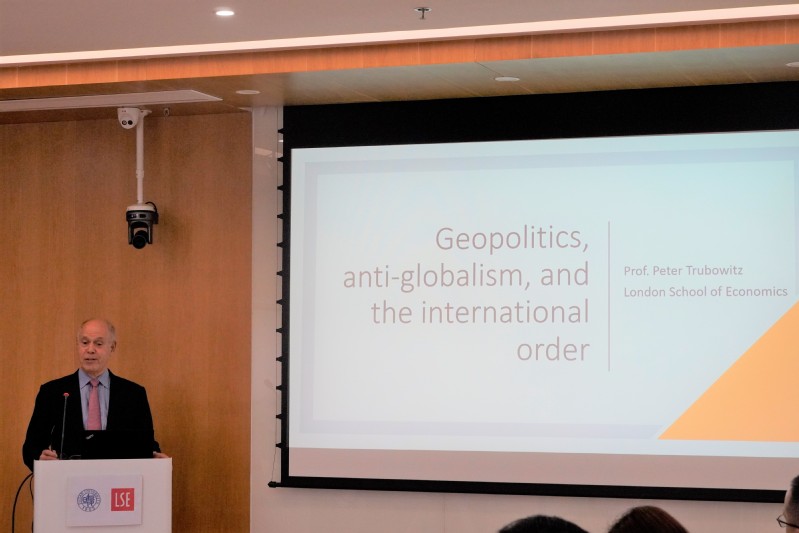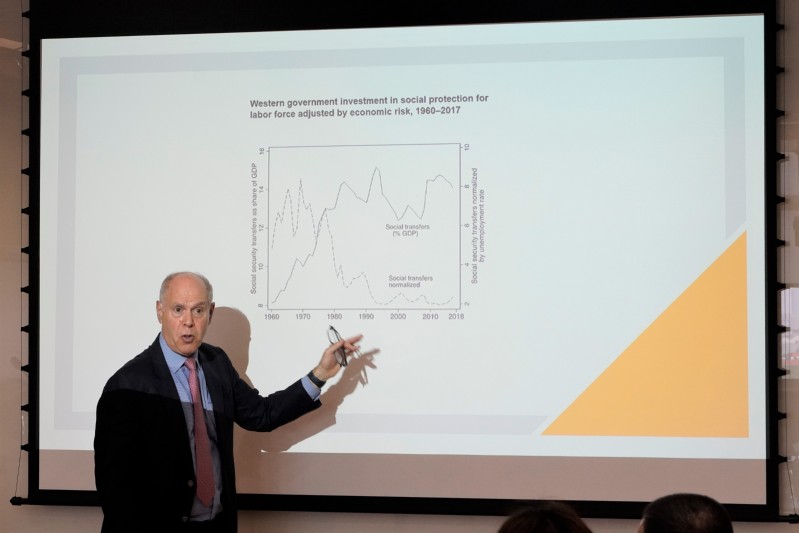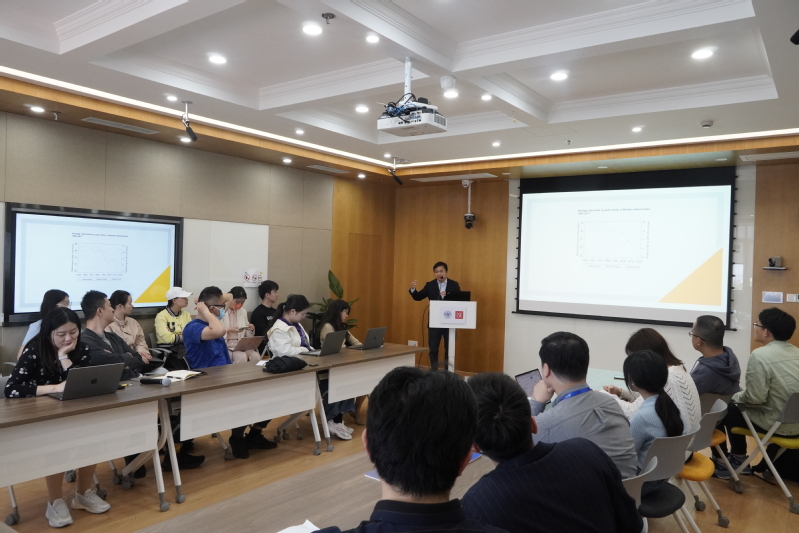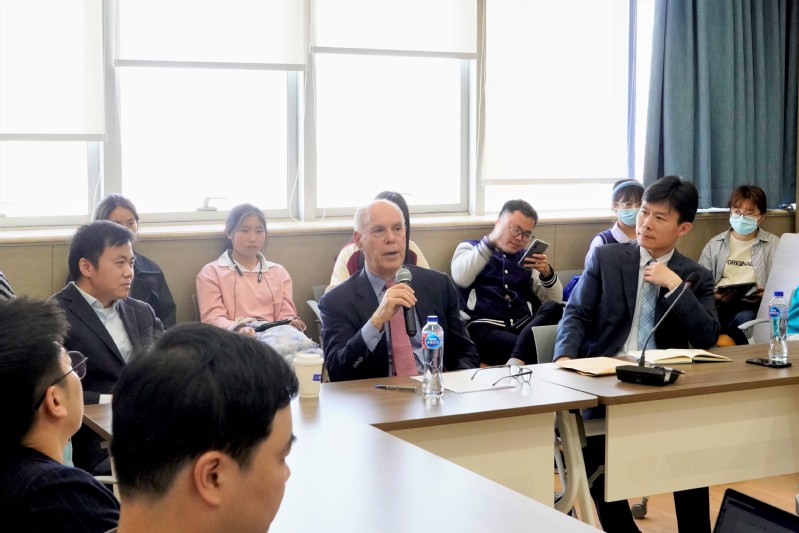Events



On April 17, 2023, the 41st lecture of the Fudan - LSE Lecture Series was held in the conference room on the 8th floor of the West Sub-Building of Guanghua Towers. Professor Peter Trubowitz from LSE gave a lecture on Geopolitics, Anti-Globalism, and International Order. The lecture was hosted by Professor Yijia Jing, Dean of the Institute for Global Public Policy, Fudan University. Professor Chengqiu Wu from the School of International Relations and Public Affairs, Fudan University served as the discussant.

At the beginning of the lecture, Prof. Jing briefly introduced Prof. Trubowitz. Prof. Trubowitz is Professor of International Relations at the London School of Economics and Political Science, Director of the Phelan US Centre, and Associate Fellow at Chatham House. His research interests are international security and comparative foreign policy with a particular focus on U.S. foreign policy.
Prof. Trubowitz introduced his forthcoming book, Geopolitics & Democracy. In this book, he provided a new explanation for the relationship between anti-globalism and the Western liberal international order. He argued that anti-globalism backlash can be traced back to a series of diplomatic decisions made by Western leaders in the decades after the Cold War. These policy combinations continuously weakened domestic investment in social welfare and expanded market globalization at the global level. This series of domestic and international policies has successfully expanded the Western liberal order, but it has also led to growing dissatisfaction and increasing division among the domestic population of Western countries.
Next, Professor Trubowitz provided empirical data to support the above argument. He presented an analysis of data such as Western governments' economic investment in domestic social welfare, domestic voter support for globalization, and Western governments' support for globalization since the end of the Cold War. Additionally, Professor Trubowitz introduced a new indicator - the Geopolitical Threat Index - and further explained this using the United States and Japan as comparative cases.

Finally, Prof. Trubowitz pointed out that the proliferation and fragmentation of political parties within Western governments is also a concern. In terms of policy implications, Western governments should focus more on their commitment to citizens’ social welfare in order to mitigate domestic division and anti-globalism backlash.
After Prof. Trubowitz’s speech, Prof. Chengqiu Wu made wonderful comments. He pointed out that it is creative that Prof. Trubowitz combined the perspectives of international and domestic politics to explain the phenomenon of anti-globalization. Prof. Trubowitz’s effort to trace the anti-globalism backlash back to the Cold War period is in fact in line with Chinese Taoism. Prof Wu also noted that Professor Trubowitz's research provides many insights for both Western and Chinese development policies and foreign strategies.

Prof. Trubowitz engaged in follow-up discussions with the students and faculty on national social welfare, Sino-US relations, and other related topics. The lecture ended in a lively academic atmosphere.
